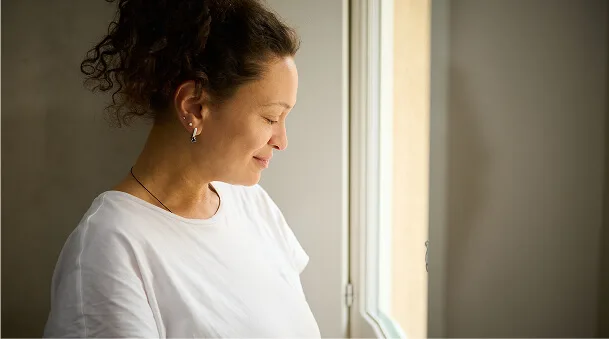VAWA SELF-PETITIONS – RELIEF FOR ABUSED IMMIGRANTS
No one should have to live in fear or endure abuse because of their immigration status. Under the Violence Against Women Act (VAWA) – or “Visa VAWA” en español – immigrants who have been mistreated by certain family members can self-petition for legal status without relying on their abuser. Despite its name, VAWA isn’t limited by gender – it protects anyone who has suffered domestic abuse. Our compassionate team understands how sensitive these situations are. We prioritize your safety, confidentiality, and peace of mind throughout the process.
Who Qualifies for a VAWA Self-Petition?
VAWA protections apply to spouses, parents, and children of abusive U.S. citizens or lawful permanent residents (LPRs). You may be eligible if:
- Spouse: You are or were the spouse of a U.S. citizen or LPR who abused you (this includes ex-spouses, as long as the marriage ended within the past two years). You can also include your children in your VAWA case if they were harmed.
- Parent: You are the parent of an abusive U.S. citizen son or daughter (21 or older).
- Child: You are the child (unmarried and under 21) of an abusive U.S. citizen or LPR parent. (Note: Children can file until age 25 if abuse delayed the application.)

Importantly, abuse under VAWA isn’t limited to physical violence. Emotional abuse, extreme cruelty, threats, manipulation, or control can also qualify. You do not need a police report to file – most of our clients have no police records of the abuse, and that’s okay. We will help you gather other evidence and a detailed personal statement to support your case.
What Are the Benefits of VAWA?
If your VAWA self-petition is approved, you can apply for a work permit and a green card without your abuser’s knowledge or involvement. Key benefits include:
VAWA applicants can obtain a work permit to legally support themselves during the process.
Once a VAWA self-petition is approved, you receive deferred action – protection from removal – while you apply for a green card. Even while your petition is pending, if USCIS issues a prima facie determination, you may become eligible for certain benefits during the wait.
VAWA may provide a path to a green card without leaving the U.S. You can file Form I-485 for adjustment of status (permanent residence) when an immigrant visa is available. Notably, VAWA self-petitioners are exempt from some grounds of inadmissibility, such as entries without permission and certain unlawful presence bars. This makes it easier to qualify for a green card.
VAWA applicants may qualify to obtain advance parole (Form I-131) to travel abroad while their green card application is pending.
Perhaps most importantly, VAWA is a completely confidential, self-petitioning process. You do not need your spouse or family member to sponsor you, and they won’t be notified about your case. This prevents an abuser from using your status against you through threats or blackmail. You stay in control of your own immigration journey.
VAWA in Removal Proceedings (Abeyance and Defense):
If you are currently facing deportation (removal proceedings), VAWA can be a lifeline. Immigration judges may temporarily hold your case in abeyance (pause the proceedings) while USCIS reviews your VAWA petition. This means the court gives you time to pursue VAWA relief instead of ordering your removal immediately. In fact, VAWA offers a defense in court: you may be eligible for VAWA Cancellation of Removal, which, if granted by the judge, ends the removal case and grants you a green card. This form of relief is often more generous and lenient for abuse survivors than other removal defenses. Even if other attorneys said nothing could be done, we won’t give up – we have successfully used VAWA to protect clients from deportation. You are not alone: we will fight to pause your deportation and secure the immigration relief you deserve.

Our Approach
VAWA cases are the heart of our practice – we have helped hundreds of survivors obtain VAWA status and regain control of their lives. We handle your case with the utmost sensitivity and confidentiality. The abuser will never be contacted by us or the government about your application. Our attorneys will guide you in writing a compelling personal affidavit, gathering evidence (such as reports, photos, witness statements), and highlighting the cruelty you endured in a way that meets legal standards. We know how to overcome common challenges, and understand you may have limited evidence and access to certain documents. Our team focuses on building strong cases based on credible personal evidence and expert legal arguments. Filing for VAWA can be complex and bureaucratic, but we handle the hard work – so you can focus on rebuilding your life.

You Stay in Control
There is no requirement to leave or divorce your spouse to apply for VAWA. Many clients choose to stay in the relationship or later reconcile – that will not affect your pending case. You also do not have to press charges or involve the police if you don’t want to. VAWA is your independent route to safety. Even if you reconcile with your spouse, your VAWA application can continue and get approved as long as the abuse happened and you filed under VAWA in good faith. Our job is to make sure you have every possible protection and option available under the law, all while you remain in the driver’s seat of your own life.


Success Story

READY TO START?
The first step is a private case evaluation with our experienced VAWA attorneys. We’ll listen to your story with empathy and determine the best way to help. You do not have to endure abuse in silence. Let us help you reclaim your freedom and build a safe future in the United States. Contact us today for a confidential case evaluation – we are here for you every step of the way.
Frequently Asked Questions – VAWA
A VAWA self-petition is a special process under the Violence Against Women Act (VAWA) that allows certain immigrants to apply for a green card without the cooperation of the abusive family member. It’s available to spouses, children, and parents of U.S. citizens or permanent residents who have been subjected to abuse or extreme cruelty. The benefits of a VAWA case include being able to get a work permit and eventually a green card on your own. You do not need your abuser’s signature or permission, and they won’t even be notified you applied. VAWA empowers you to seek legal status independently and in secret for your safety.
No. Despite the name, VAWA protections apply to all genders. Both women and men who have suffered domestic abuse by a qualifying relative (spouse, parent, or adult child) can file a VAWA self-petition. The key factor is the abuse, not the gender of the victim. Our firm has helped clients of all genders use VAWA to obtain legal status.
No, physical abuse is not required. Immigration law recognizes that abuse can take many forms. VAWA eligibility can be based on emotional abuse, psychological manipulation, threats, isolation, financial control, or other forms of extreme cruelty. You do not need a police report or criminal charges against the abuser. We will help you document the non-physical abuse you endured – for instance, through personal statements, witness affidavits, counseling reports, or other evidence of how you were mistreated. Most of our VAWA cases have been successful without any police involvement.
Not unless you want to. There is no legal requirement to separate or divorce in order to pursue a VAWA self-petition. We understand relationships can be complicated. You are allowed to reconcile or remain with your spouse (or parent/child) while your VAWA case is pending – it will not hurt your application if you choose to stay together. VAWA is about giving you an independent way to get status, but it doesn’t force you to change your personal situation. The important thing is that abuse occurred in the past or is occurring; whether you have left the abuser or not is your choice.
No. They won’t be punished, and they won’t even know you filed, unless you tell them. A VAWA petition is completely confidential and is filed without involving the abuser. Immigration will not contact them at all. Also, filing a VAWA case does not initiate any criminal or police action against the abuser. It is purely an immigration benefit for you. So you don’t need to worry that you are “getting them in trouble” – you’re simply protecting yourself.
No. You do not need to have ever called the police, filed a restraining order, or pressed charges to qualify for VAWA. Many VAWA applicants have no police reports, and that’s okay. While any evidence like police or medical records can help, we often rely on other proof like personal affidavits, witness statements (from friends/family who know of the abuse), therapy records, photographs of injuries or damage, etc. Our team will guide you in gathering sufficient evidence and will prepare a detailed declaration of your experiences. The lack of official reports is not a barrier – most of our clients don’t have them and still succeed.
Possibly, yes. If you were married to a U.S. citizen or resident abuser and are now divorced, the law allows you to file a VAWA self-petition within two years of the divorce or separation, (as long as the abuse was one of the reasons for the divorce). So if your marriage ended recently, you may still qualify. Even if more than two years have passed, there might be other options. We recommend you consult with us about your specific situation.
Yes. If you are the primary VAWA applicant (for example, an abused spouse or an abused parent), you can include your unmarried children under 21 as derivatives on your VAWA case. This means they can get protection and status through your petition. The children you include do not have to have been abused themselves. For instance, if you are the abused spouse, your kids can benefit even if only you were the direct victim. If your child was also abused by the same abuser, they might qualify to file their own VAWA petition as well – we can help determine the best approach.
VAWA approval first gives you classification as a “VAWA self-petitioner.” In many cases, you can file for adjustment of status (a green card) at the same time if you are eligible. Ultimately, a successful VAWA case leads to a green card (lawful permanent residence) for the applicant (and their derivatives). While the case is pending, VAWA applicants can also obtain work authorization to legally work in the U.S. Importantly, you are also protected from deportation while your VAWA case is in process and after approval. It’s a pathway to both safety and permanent status.
On average, a VAWA self-petition (Form I-360) takes about 18 to 24 months to be adjudicated, although timelines can vary. In our experience, many VAWA applicants receive their prima facie determination (a letter indicating initial eligibility) within a few months, and a work permit (if filed with adjustment of status) in about 6–8 months under current processes. The full green card through VAWA may take longer (Around 3 to 4 years). We will provide you with the most current timeline when you consult with us, as processing times can change.
PRACTICE AREAS
Our mission is to help clients secure immigration relief and live with peace of mind. A better future for you and your family is within reach. At Moumita Rahman Immigration Attorneys, we fight for your freedom.


